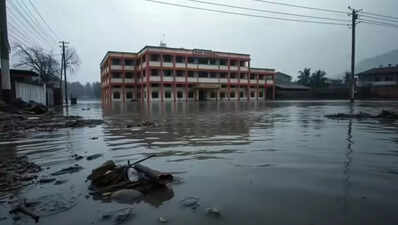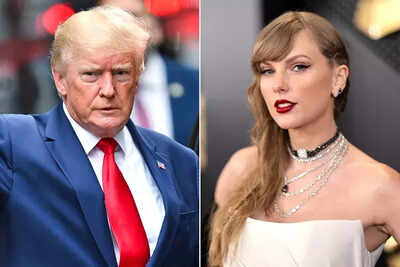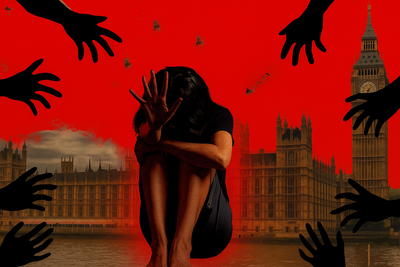F-1 visa denied at the counter, shares Redditor: How the ‘intent to return’ test is crushing Indian students’ American dreams
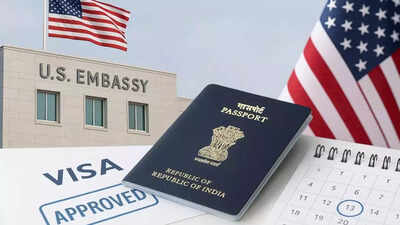
The American dream of studying at a top university is slipping away for many Indian students. Between March and May 2025, the US issued only 9,906 F-1 visas to Indian applicants, a steep 27% decline from the 13,478 granted in the same period last year, suggests data from the US State Department. Even compared to the post-pandemic recovery year of 2022, when 10,894 visas were issued, this year’s figures look grim. The fall is not merely statistical—it represents shattered plans, mounting financial anxiety, and the emotional toll of seeing years of preparation dismissed in a matter of minutes at a consular counter.
A Redditor’s disheartening experience
One such story surfaced recently on Reddit, where an Indian student admitted to North Carolina State University (NCSU) recounted how a long-awaited dream collapsed in a matter of minutes. The trouble began even before he reached the interview window. His visa appointment was scheduled for July 17, but the notification arrived at such short notice that he had no choice but to file his DS-160 form just a day earlier, on July 16. This “eleventh-hour” submission, though unintentional, immediately raised a red flag at the passport verification counter drawing suspicion. Though he was eventually allowed into the biometrics and interview process, the interview itself was brief and blunt.When asked why he had chosen NCSU, his answer cited standard science courses like Biology, Chemistry, and Anatomy—hardly unique offerings. He also disclosed that his brother is already enrolled at the same university, and that his father’s distribution business would sponsor his education. Moments later, the visa officer ended the interview with the cold line: “I can’t approve your visa.” The rejection came under Section 214(b), a clause dreaded by students worldwide.
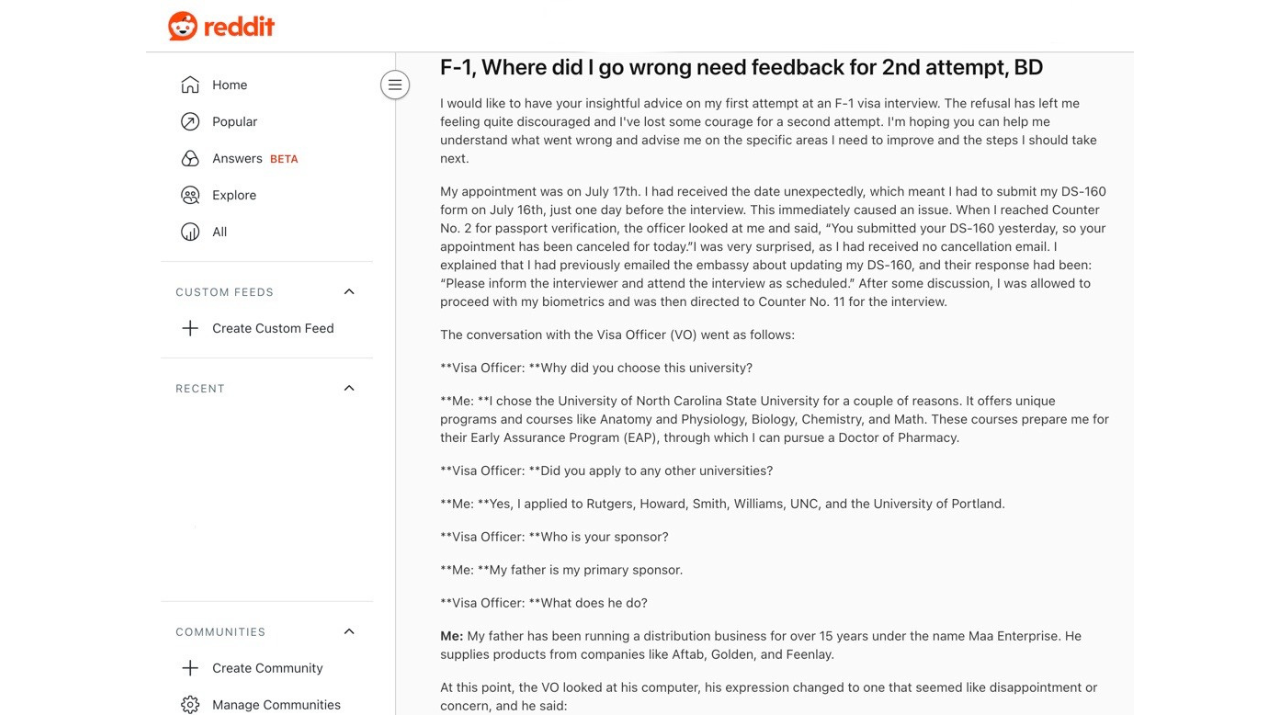
Section 214(b) explained: The silent barrier
Section 214(b) of the US Immigration and Nationality Act presumes that every applicant for a non-immigrant visa intends to immigrate unless they can prove otherwise. For students, this translates to one test: Can you convince the officer that you will return home after your degree? If the officer doubts your intent—even slightly—the rejection stamp follows.Contrary to popular belief, this is not always about financial documents or academic scores. The law places enormous discretion in the hands of visa officers. Answers to “Why this university?”, “Who is sponsoring you?”, or even family ties in the US can tilt the balance. A sibling studying at the same university, like in the Redditor’s case, can trigger suspicion of family relocation plans.
The crux: Proving intent to return
If there is one phrase that stalks every F-1 visa aspirant like a shadow, it is this: Non-immigrant intent. For young Indians, this is both the most intangible and the most perilous hurdle.At its heart, “intent to return” is not about what you feel in your bones—it is about what you can persuade a consular officer to believe in a 90-second exchange. And here lies the paradox: Most students applying for US universities do so because they see America as a springboard for careers, networks, and opportunities that transcend borders. They want to be global citizens, not tethered by geography. Yet, the consular officer demands the opposite: A performance of loyalty to one’s home soil, an assurance that India is the final destination, not a temporary stopover en route to a green card.
The four litmus tests you must pass at the visa counter
So what convinces an officer? First, career anchoring. Students who articulate a specific plan—say, “I will return to join India’s rapidly expanding pharmaceutical industry where the demand for Doctor of Pharmacy graduates is surging”—signal a tether back home. Contrast this with the vague “I want to explore options after graduation.” The latter sounds like ambition. To the visa officer, it sounds like emigration.Second, family and financial roots. Property ownership, a thriving family enterprise, elderly dependents—all these form the scaffolding of ‘ties’ to India. But simply naming them is not enough. A student must show how these ties bind their future: “My father’s distribution business, which I plan to expand into healthcare products after my US degree, will be my professional anchor.” That narrative weaves American education into an Indian trajectory. Without it, the officer sees only an exit plan.Third, the invisible passport: Travel history. A candidate who has studied in Europe or travelled for conferences and returned promptly builds credibility. The Redditor who confessed to having “no prior travel history” entered with a handicap. In the eyes of the officer, first-time travellers are more likely to overstay. The irony is brutal: You need to have travelled abroad to prove you can be trusted to travel abroad.Finally, there is the matter of how you talk about your chosen university. American officers, seasoned in sniffing out half-baked answers, can instantly spot a cut-and-paste response. When a student says “NCSU offers Biology and Chemistry courses,” the officer silently rolls his eyes; every American university offers those. The trick is to be concrete: Cite a faculty member’s research, a unique lab, or a programme unavailable elsewhere. In other words, show that you have thought deeply, not just filled in blanks.Visa rejections aren’t about grades, they’re about storytellingWhat makes this requirement almost cruel is that it asks 20-year-olds to forecast their lives with the certainty of a CEO presenting a five-year plan. Many will evolve, change direction, or even end up settling abroad legitimately through later visas. But none of that is admissible at the interview. The visa process is not interested in your personal truth; it wants a narrative of return, neat, convincing, and immediate.The consequence? Countless students, brilliant and hardworking, are tripped up not by lack of money or admission letters but by failure to stage this performance persuasively. Section 214(b), in effect, measures not academic merit but rhetorical agility. And as the 27% fall in visas this year shows, the bar is rising higher.
The bigger picture
The 27% fall in F-1 visas for Indians this year is not an isolated bureaucratic hiccup—it is the most visible symptom of a deeper churn in American politics, where Indian students are increasingly caught in the crossfire of anti-immigrant rhetoric. The traditional pipeline that once made the US a natural destination—F-1 student visas feeding into OPT (Optional Practical Training) work permits, and eventually into the coveted H-1B professional visa—is now under siege. For decades, this three-step route was quietly celebrated in Silicon Valley boardrooms, where Indian engineers and scientists became the backbone of the tech boom. Today, it is being reframed as a threat to American jobs. Former Trump strategist Steve Bannon has openly demanded a halt to all foreign student visas, bluntly declaring that “no foreign students should be in the country right now.” On Capitol Hill, Congresswoman Marjorie Taylor Greene has called for a ban on Indian H-1B holders, painting them as competitors displacing American graduates in the tech labour market. In this climate, every Indian F-1 applicant is no longer seen as a student but as a potential immigrant and future H-1B contender—a perception that colours the consular officer’s judgment before the first question is even asked. That explains why Section 214(b) denials feel less like individual missteps and more like systemic filtering. The Redditor who left the consulate ‘discouraged’ after a rejection is not just one unlucky applicant; he is part of a cohort that faces suspicion not for what they said in a two-minute interview but for what their presence in the US symbolises. Indian students are no longer being judged only on academic merit; they are being scrutinised as proxies in a larger political battle over immigration, jobs, and America’s own sense of economic insecurity.
